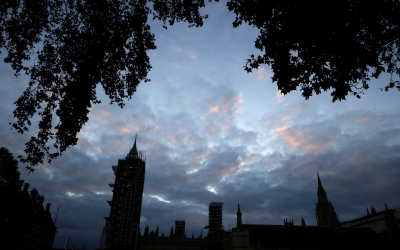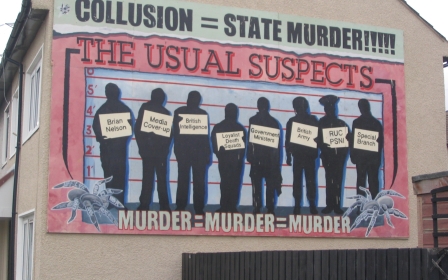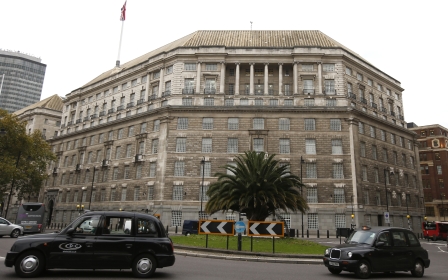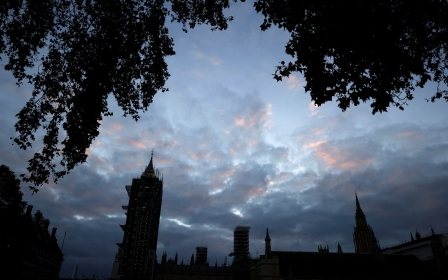UK secret agents bill 'could permit state-sponsored rape and murder'
A controversial new law that would allow agents recruited by the UK’s police and security agency, MI5, to break the law could lead to serious criminality and human rights abuses, a parliamentary committee has warned.
The Joint Committee of Human Rights (JCHR) of the UK parliament has said the draft bill lacks sufficient safeguards to prevent its provisions being abused.
The Covert Human Intelligence Sources (Criminal Conduct) Bill represents an attempt by government ministers to place long-standing practices on a statutory footing.
Agents being run by MI5 officers have long been able to commit crimes - including murder and torture - as long as these acts have been authorised by the handlers.
The new bill is being introduced after a number of human rights groups and members of parliament went to court to challenge the lawfulness of the current practices.
New MEE newsletter: Jerusalem Dispatch
Sign up to get the latest insights and analysis on Israel-Palestine, alongside Turkey Unpacked and other MEE newsletters
The bill passed through the lower house of parliament, the House of Commons, by 313 votes to 98 after the opposition Labour party decided to abstain rather than vote against it.
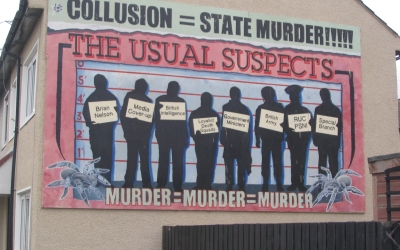
During the 30-year conflict in Northern Ireland, agents working for MI5, the police and military intelligence are now known to have committed a series of crimes.
In the most notorious case, Pat Finucane, a lawyer in Belfast, was shot dead in front of his wife and children in February 1989.
Three official inquiries concluded that the murder was planned by an employee of the UK's Ministry of Defence; the weapons were supplied by a police informer - who had warned his handlers of the planned killing - and the getaway driver was recruited as an agent after his arrest.
The JCHR said that although it may on occasion be necessary for covert human intelligence sources - known as chises - to commit offences, the bill as it stands does not have the adequate safeguards and oversight in place to prevent the authorisation of criminal conduct being abused.
'Major human rights concerns'
Harriet Harman, the Labour MP who chairs the committee, said: “This bill raises major human rights concerns. It permits officials to secretly authorise crimes on the streets of the UK and abroad. There should be added to the bill clear limits on the scale and type of criminality which can be authorised.
“We cannot pass a law that leaves open the possibility of state-sanctioned rape, murder or torture.”
The committee expressed concern that the new bill does not exclude the possibility of children who have been recruited as chises being authorised to commit crimes.
Its members also said that the bill’s provisions should extend only to police and security agencies that are combating terrorist threats and serious crime, and not to public bodies that deal with food hygiene standards and gambling.
Last month the JCHR condemned another bill brought forward by Boris Johnson’s government which is intended to shield service personnel from prosecution for serious crimes committed outside the UK, once five years have elapsed from the time the offence was committed.
The Overseas Operations Bill would make it difficult to prosecute soldiers for murder, torture, crimes against humanity and genocide, even when military prosecutors have concluded there is sufficient evidence and that it is in the public interest to bring charges.
The only offences to be excluded would be sexual offences.
When giving evidence to the JCHR, Johnny Mercer, the junior defence minister who is steering that bill through parliament, repeatedly declined to say whether he believed UK personnel accused of war crimes, crimes against humanity and genocide should be prosecuted, where there was sufficient evidence.
The committee described his position as “unacceptable”.
Middle East Eye delivers independent and unrivalled coverage and analysis of the Middle East, North Africa and beyond. To learn more about republishing this content and the associated fees, please fill out this form. More about MEE can be found here.


